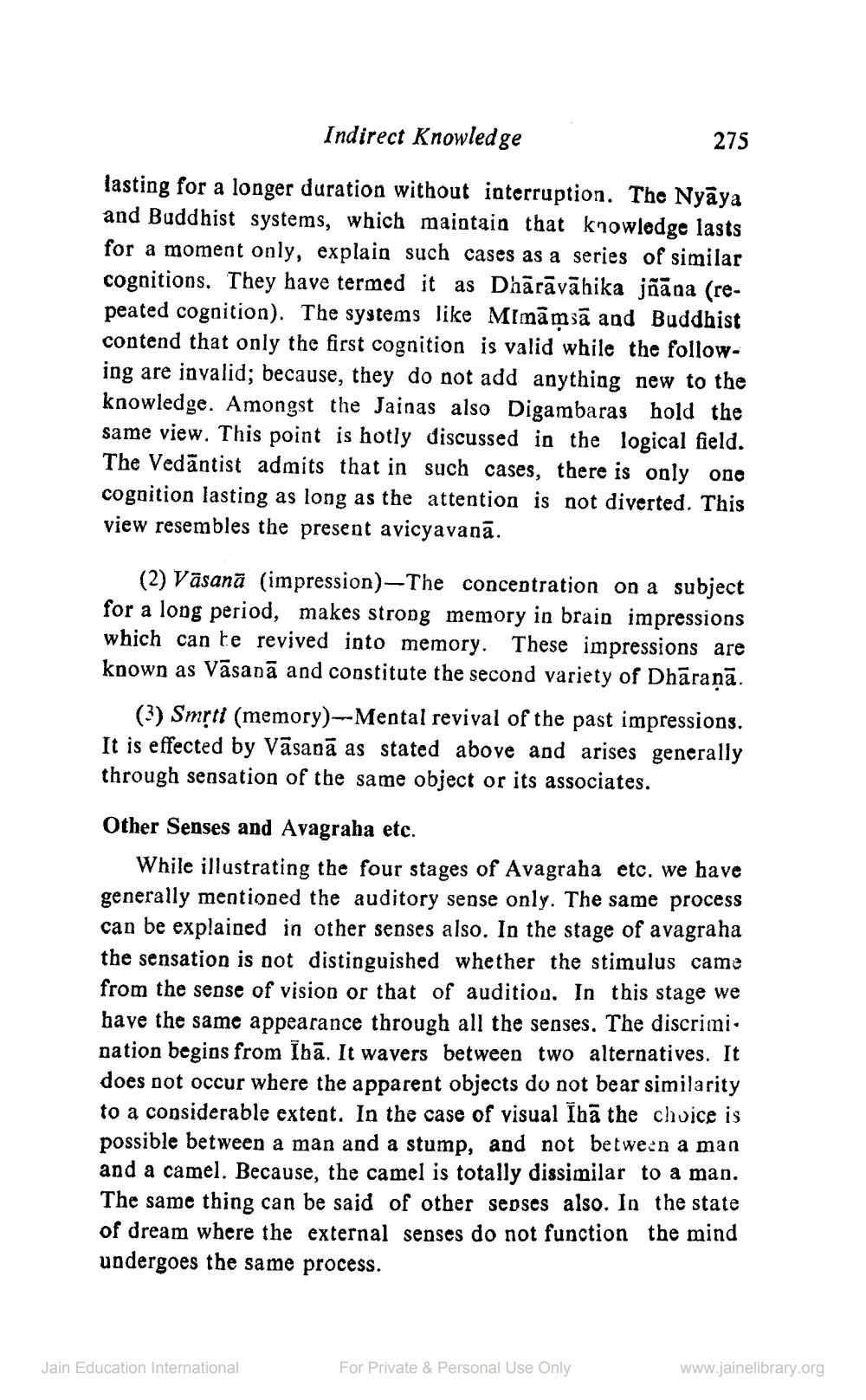________________
Indirect Knowledge
275
lasting for a longer duration without interruption. The Nyāya and Buddhist systems, which maintain that knowledge lasts for a moment only, explain such cases as a series of similar cognitions. They have termed it as Dhārāvābika jñāna (repeated cognition). The systems like Mimāṁsā and Buddhist contend that only the first cognition is valid while the following are invalid; because, they do not add anything new to the knowledge. Amongst the Jainas also Digambaras hold the same view. This point is hotly discussed in the logical field. The Vedāntist admits that in such cases, there is only one cognition lasting as long as the attention is not diverted. This view resembles the present avicyavanā.
(2) Vāsanā (impression)—The concentration on a subject for a long period, makes strong memory in brain impressions which can te revived into memory. These impressions are known as Vāsanā and constitute the second variety of Dhāraṇā.
(3) Smrti (memory)-Mental revival of the past impressions. It is effected by Vāsanā as stated above and arises generally through sensation of the same object or its associates.
Other Senses and Avagraha etc.
While illustrating the four stages of Avagraha etc. we have generally mentioned the auditory sense only. The same process can be explained in other senses also. In the stage of avagraha the sensation is not distinguished whether the stimulus came from the sense of vision or that of audition. In this stage we have the same appearance through all the senses. The discrimi. nation begins from Ibā. It wavers between two alternatives. It does not occur where the apparent objects do not bear similarity to a considerable extent. In the case of visual Ibā the choice is possible between a man and a stump, and not between a man and a camel. Because, the camel is totally dissimilar to a man. The same thing can be said of other sepses also. In the state of dream where the external senses do not function the mind undergoes the same process.
For Private & Personal Use Only
www.jainelibrary.org
Jain Education International




